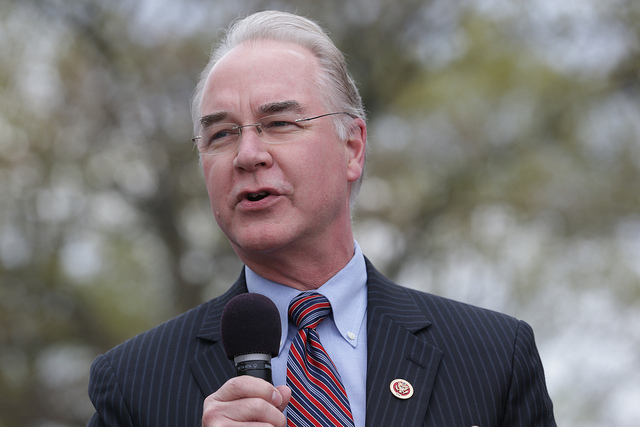
House Budget Chairman Tom Price (R-Ga.) recently unveiled a detailed proposal designed to fix the broken federal budget process. This discussion draft outlines a number of reforms that aim to reassert Congressional authority over the federal budget, establish enforceable benchmarks to rein in the deficit, and implement process reforms that reverse the bias toward unaccountable spending.
Bizarrely, the proposal has been criticized by some on the Left based on the idea that the Price plan will directly, and immediately lead to trillions of dollars of cuts to Medicare, Medicaid, and Social Security.
This is wrong. Nowhere does the Price Budget reform plan propose – or even mention – trillion in cuts to these programs.
Instead, the proposal is a much needed attempt to fix the problems of the 1974 Budget Act.
Rather than pushing these deceptive, unfounded criticisms, opponents of the Price plan should focus their efforts toward proposing their own reforms. Ignoring the need to reform the 1974 Budget Act is an explicit endorsement of the political dysfunction, gridlock, and irresponsible spending that has become increasingly prevalent in recent decades.
The current budget system is unquestionably rigged toward unaccountable, reckless spending. It is far too easy for members of either party to play politics and derail the process of “regular order.” When this occurs, complex policy making inevitably devolves to a series of last-minute, backroom deals, and votes on thousand page bills that few – if any have read.
This is not a new trend, but has occurred consistently since the 74 Budget Act was made into law. Over the past 40 years, there have been 176 Continuing Resolutions because Congress failed to complete the budget and appropriations process. In this time, all 12 appropriations bills have been completed just four times. Within the last 20 years, all 12 bills have been completed just once. Congress has even failed to pass a budget resolution – itself often a symbolic act – 8 times in the past 15 years. With these dismal numbers, it is unsurprising that Congress is so unpopular. Clearly, major change is needed.
One criticism of the Price plan concludes that it is a way to “shield unpopular choices from voters.” In reality, the opposite is true. Demonizing any attempt to reform the budget system by pushing deceptive lies only makes it harder for lawmakers to fix our unsustainable and growing spending problem. The longer this dysfunctional system remains the norm, the longer lawmakers will be able to shield their unpopular choices from voters.

